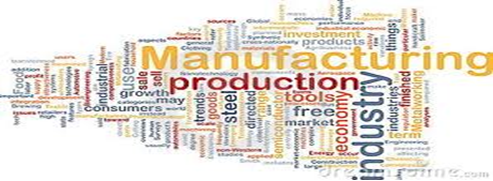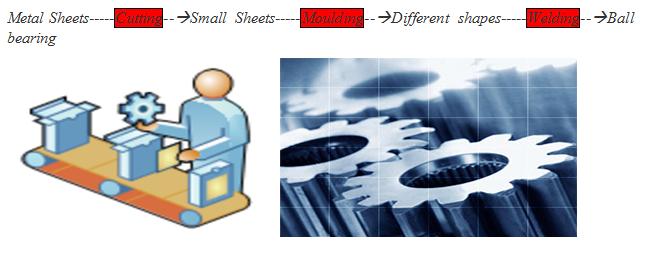Let us understand the basic difference between the types of Manufacturing processes followed. This can be broadly classified as under-
I. Discrete manufacturing
II. Process manufacturing

Discrete Manufacturing
Companies following this type of manufacturing use multiple parts/ pieces of various materials for assembling of products. The manufacturer typically uses a Bill of Material which contains the list of various items or raw materials intended for making of the final product. The products are manufactured in definite lots and are tracked accordingly. Industries following Discrete Manufacturing methodology require developed high level planning and scheduling facilities. Materials used in each of the processes changes its shape and size acquiring a new form at the final stage. Lot tracking becomes inevitable to track the exact manufactured and defect quantities if any.
New Stuff: How to Resolve Help screen issue on Sage workstation
Consider the example of any automobile industry producing various components like bearings will classically practice this type of manufacturing strategy. Here long sheets of metal act as raw material, go through different machines for cutting, shaping, moulding, loses its shape attains a different shape, cut into various sizes and is turned into a final product. The whole procedure is carried out in lots thus helping in tracking the actual cost and status of the product.
E.g. In short:-

Process Manufacturing
Process Manufacturing as against to Discrete Manufacturing requires a pre-defined set of activities / processes to complete the manufacturing of the end product. This type of manufacturing involves processes based on fixed formulae for the materials given as inputs and outputs. Any chemical or pharma based companies stereotypically use Process Manufacturing. The production takes place in different batches and are tracked on the same. Each end- product has a well-defined set of activities/processes involving raw-materials / semi- finished items to be performed. Formulae for each of these processes are also demarcated. Thus Discrete Manufacturing can also be termed as Formula based.
Let’s take a simple example of any chemical manufacturing unit to understand the Process manufacturing. In any chemical or pharma company there will be formulae for mixing of materials in certain ratio and then many processes followed to attain the end- product in the specific composition. This type of chemical process may involve only one phase or multiple phases. The operation carried out in each phase is in individual vessels either in the form of mixing or separation. These processes may be time bound or sequential along a stream of flowing or moving. For any given amount of input material, an expected amount of output material can be determined at key steps in the process. At the end of each operation/process, there will be co-products or by-products depending upon the chemical process and the physical state of the material. Typical examples involve Food, pharmaceutical, chemical based companies etc.
Examples of Important processes involved in any chemical company are – Oxidation, Reduction, Mixing, Amalgamation etc.
Progressing towards globalization and stronger competition business both discrete and process industries need to have strict control, greater flexibility, minimum downtime and cost efficiency which are indeed provided by a full-proof ERP system. Both discrete and process manufacturers can rely on ERP for all the essential requirements to be taken care of. Wholly ERP is thus the comprehensive solution for any manufacturing industry across the globe.
Also Read:
1. Different Costing methods in Sage 300 ERP
2. Inventory Cost Analysis in Sage 300 ERP
3. How to Deploy Sage Intelligence Reports
4. IC/ Copy Bill of Material
5. BOM Setup for Manufacturing Company in Sage 300 ERP


